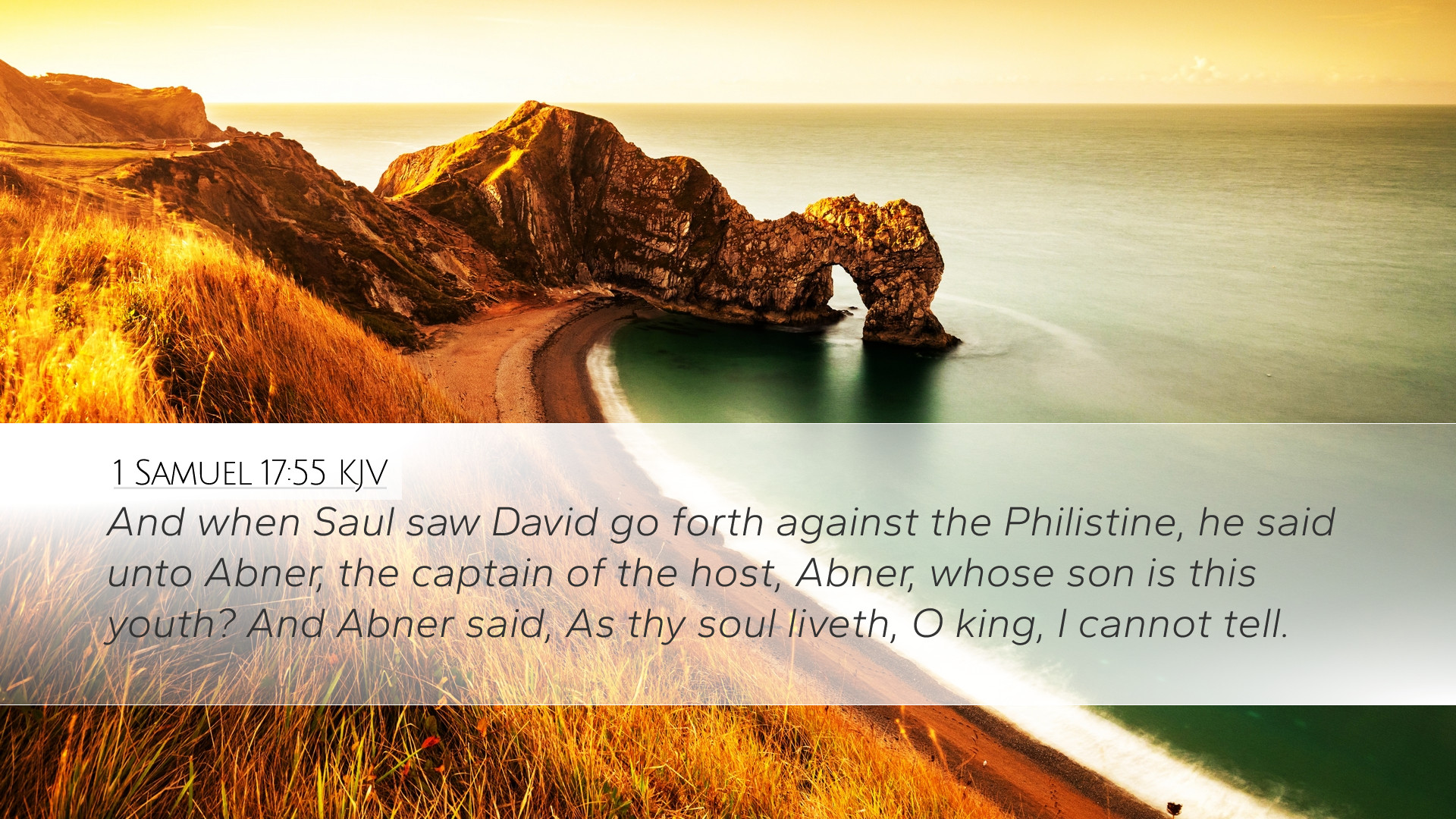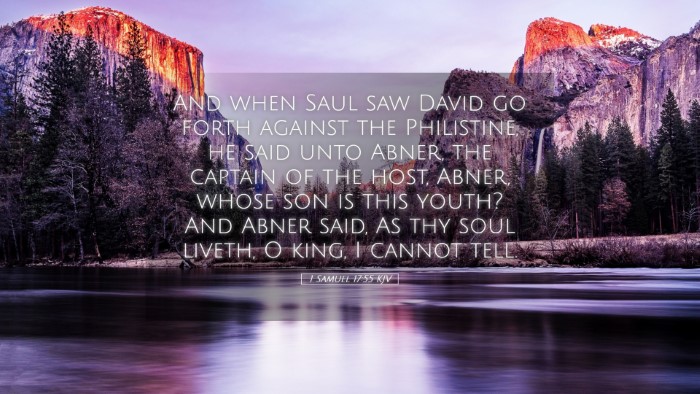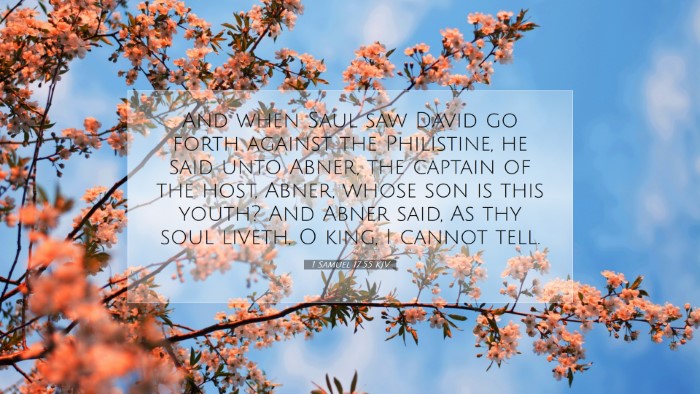Commentary on 1 Samuel 17:55
1 Samuel 17:55 states: "And when Saul saw David go forth against the Philistine, he said unto Abner, the captain of the host, Abner, whose son is this youth? And Abner said, As thy soul liveth, O king, I cannot tell." This verse occurs in the famous account of David and Goliath, which serves as a pivotal moment in the transition of leadership in Israel. The curious inquiry by King Saul into David’s identity lays the groundwork for understanding the subsequent events in the narrative.
Contextual Overview
This passage is placed in the backdrop of a monumental battle between the Israelites and the Philistines. Goliath, the champion of the Philistines, had been taunting the Israelite army, and here, young David boldly steps forward to challenge him. Saul's reaction to David's bravery introduces themes of leadership, identity, and divine favor.
Insights from Matthew Henry
Matthew Henry brings forth the notion that Saul's inquiry regarding David's parentage reveals the King’s lack of awareness of God’s chosen vessel. Henry points out that even as Saul was king, he was not attuned to the workings of God within his own nation. He notes:
- Saul's ignorance of David speaks to his spiritual blindness and detachment from God’s plans.
- This moment contrasts David’s humble beginnings with the grandeur of Saul’s reign, emphasizing divine selection over human recognition.
- The exchange highlights the significance of lineage and identity in the ancient context, as familial connections often determined one’s status and role in society.
Insights from Albert Barnes
Albert Barnes focuses on the implications of Saul’s question. He elaborates that this inquiry indicates that David was not yet recognized as a significant figure within the army, despite his monumental role in the battle. Barnes comments that:
- Saul’s query reflects not merely curiosity but also a strategic concern about who would combat Goliath. The king’s leadership is called into question.
- The term "youth" implies David’s youthfulness and perhaps the shock that a boy could confront such a formidable opponent.
- Barnes suggests that Abner’s inability to identify David represents a failure of the leadership to recognize the new directions of divine intervention.
Insights from Adam Clarke
Adam Clarke emphasizes the cultural implications of this verse. Clarke highlights that societal norms placed importance on familial connections, which would typically dictate one's role. He states:
- Saul's question concerning David’s father shows the importance of family background in determining status; yet David transcends this through his faith and actions.
- This episode serves as a reminder that God’s plans often unfold through unexpected means, challenging established structures.
- Clarke underlines that Abner’s response underscores a moment of uncertainty within Saul’s leadership, suggesting that even his captain feels the dissonance between Saul’s authority and God’s movement through David.
Theological Reflections
In considering the broader theological implications of 1 Samuel 17:55, we see reflections on:
- Leadership and Recognition: God often calls the most unlikely individuals, highlighting human unawareness of divine purposes.
- Identity in Christ: By paralleling David's anointing with New Testament themes, one can reflect on how identity in Christ transcends earthly lineage and recognition.
- The Sovereignty of God: The likelihood that Saul, inquiring about David, is emblematic of human attempts to control or comprehend divine choices that often defy human logic.
Practical Applications
This verse, while historical, holds numerous practical applications for contemporary readers:
- Encouragement for the Underdog: Just as David triumphed against all odds, individuals facing challenges can find hope in God’s empowering presence.
- Awareness of God’s Choices: Leaders are reminded to remain vigilant and responsive to God’s chosen instruments in their communities, which may not fit expected profiles.
- Identity Reflection: Believers today can reflect on their identity and worth not by worldly standards, but through their relationship with God.
Conclusion
In summary, 1 Samuel 17:55 serves as an essential verse that frames the identity of David within the larger narrative of Israel's history. The responses of Saul and Abner provide insights into the prevailing attitudes of leadership and the unfolding of God’s purpose. As we contemplate this passage, may we be reminded of the profound truth that God often chooses the humble and the overlooked to accomplish His divine will.


